Fences, Insects, Embroideries (Material Communities)
Curated by: Karin Reisinger
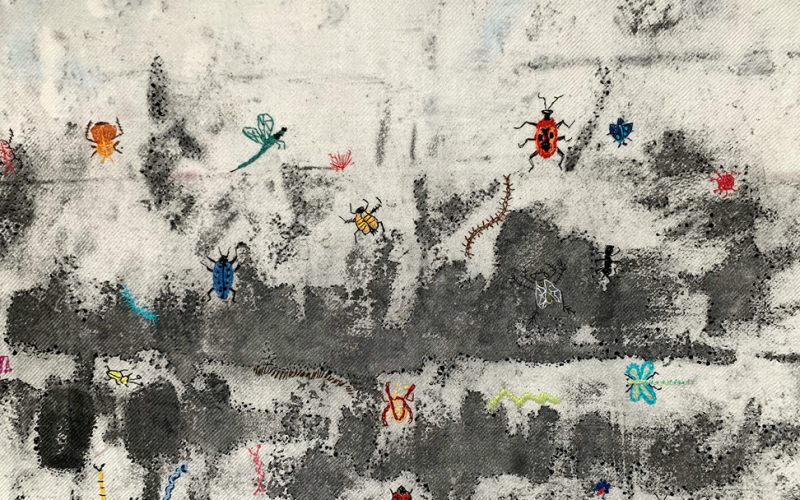
-

© Karina Jarrett -
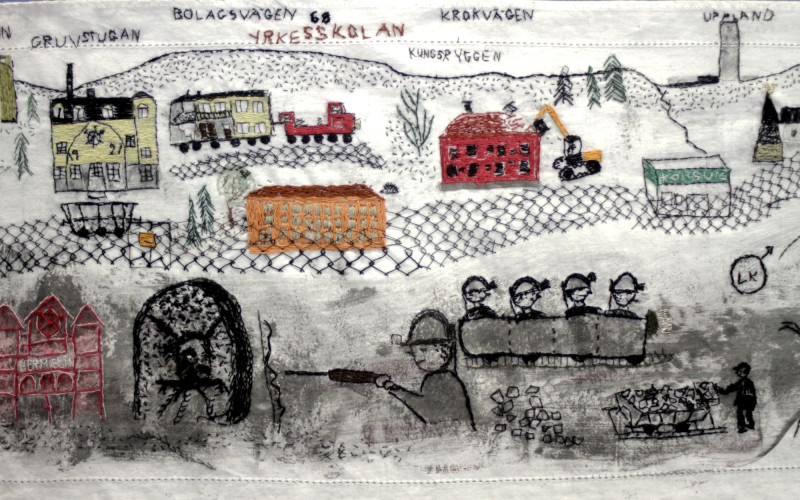
© WIENWOCHE -
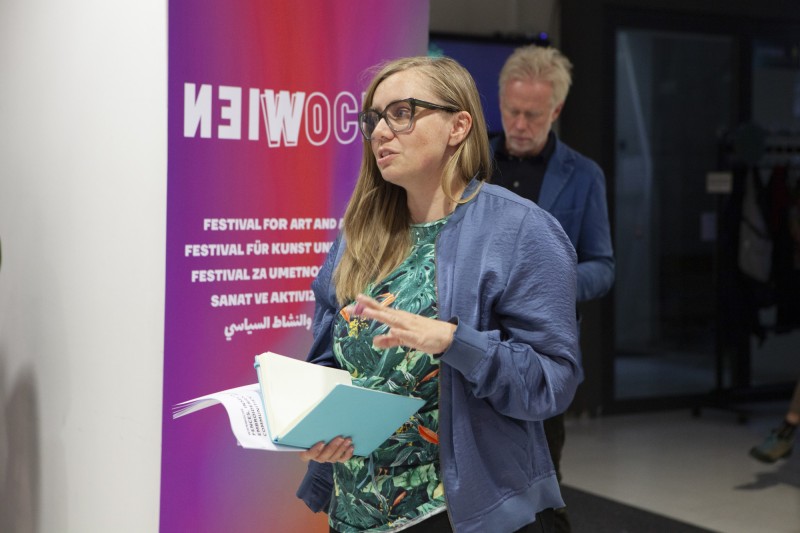
© Olesya Kleymenova/WIENWOCHE -
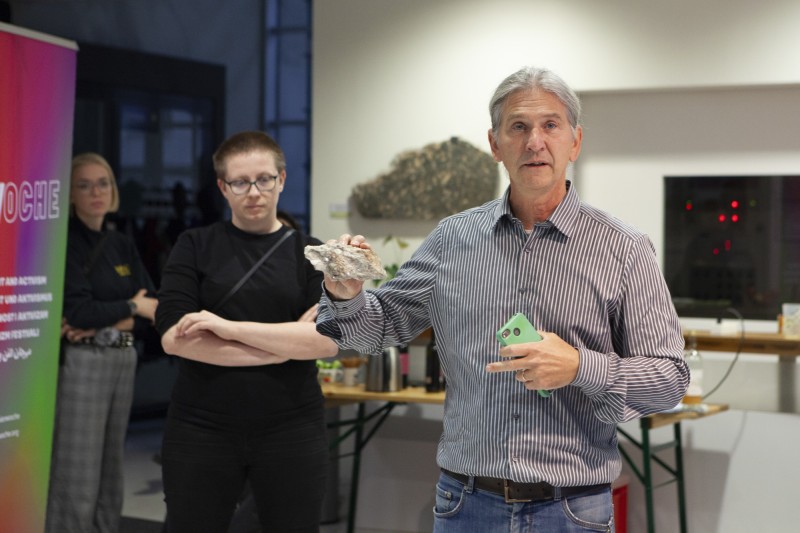
© Olesya Kleymenova/WIENWOCHE -
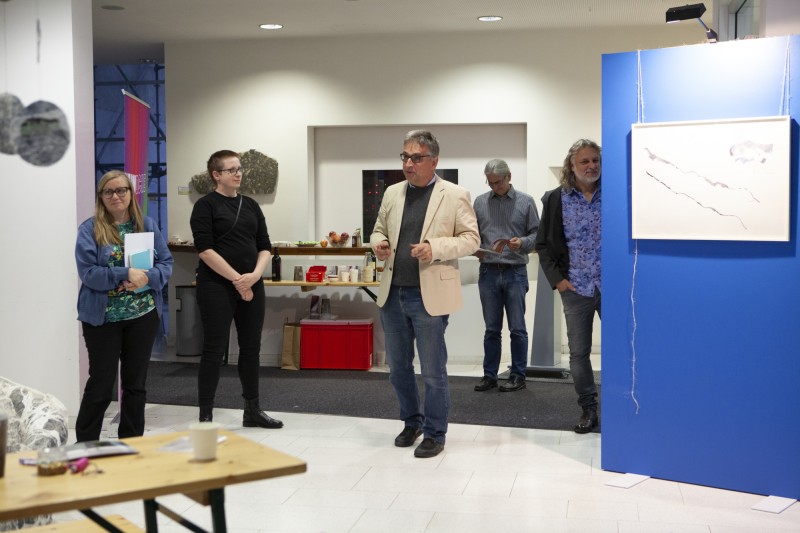
© Olesya Kleymenova/WIENWOCHE -
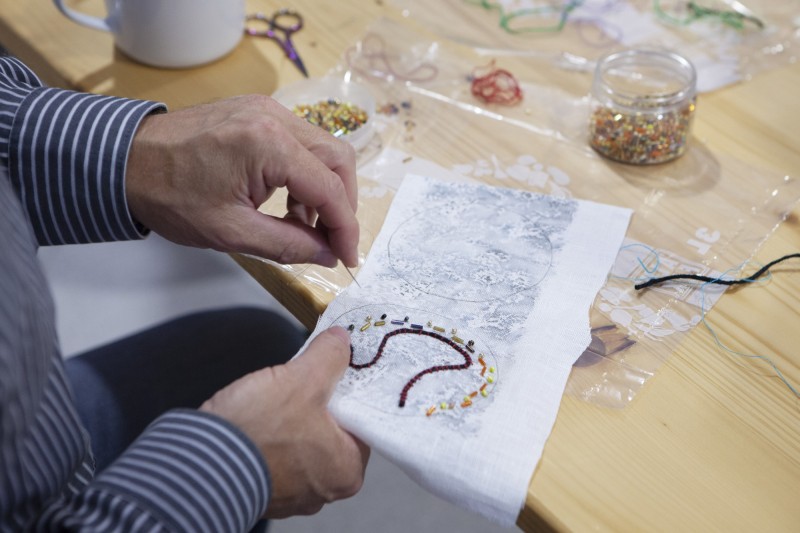
© Olesya Kleymenova/WIENWOCHE -
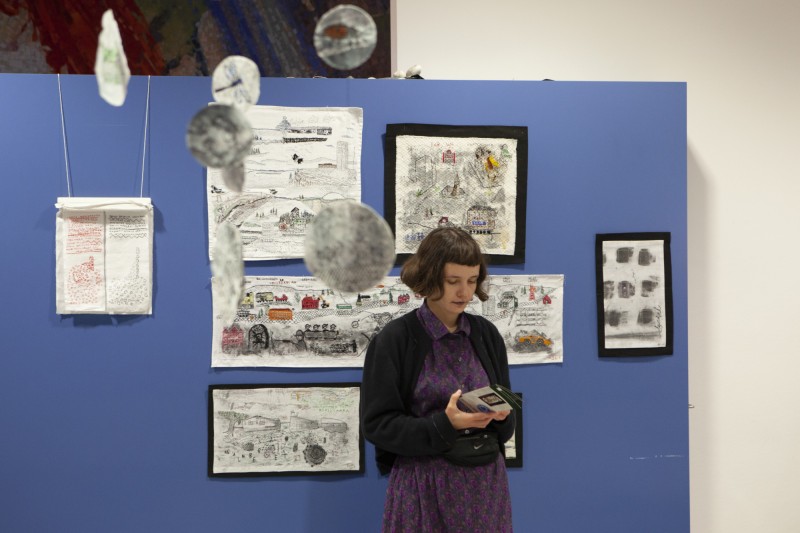
© Olesya Kleymenova/WIENWOCHE -
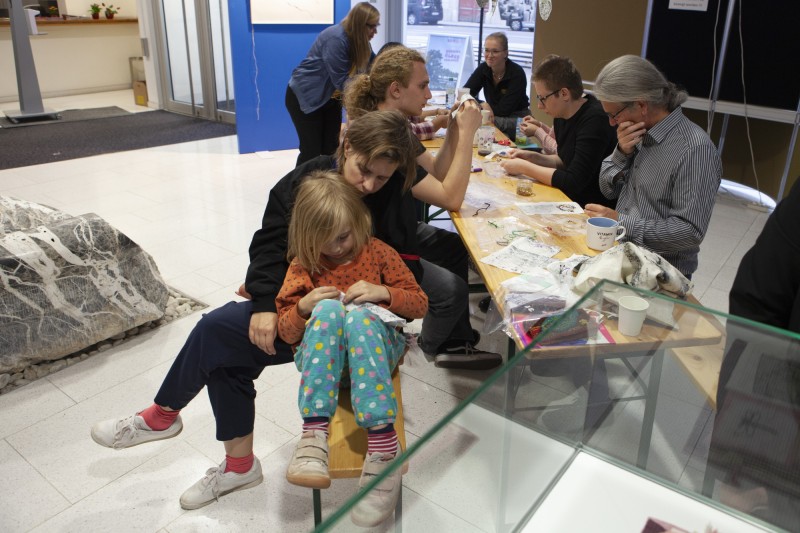
© Olesya Kleymenova/WIENWOCHE -
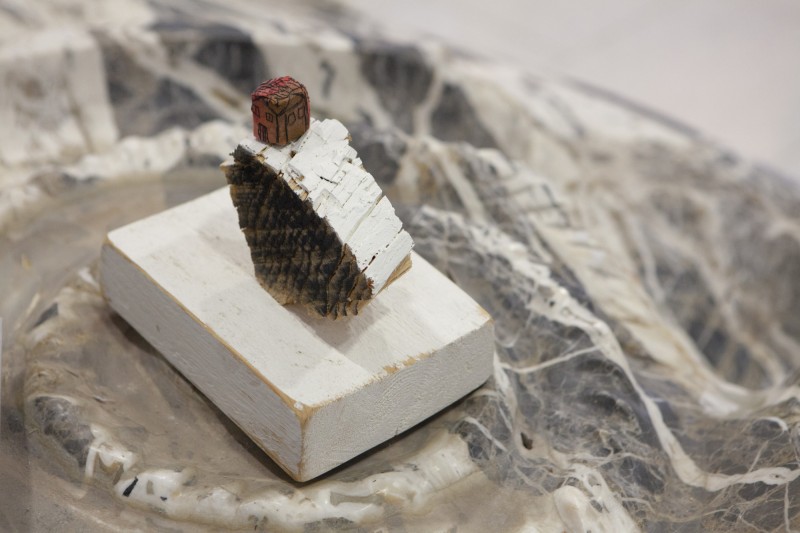
© Olesya Kleymenova/WIENWOCHE -
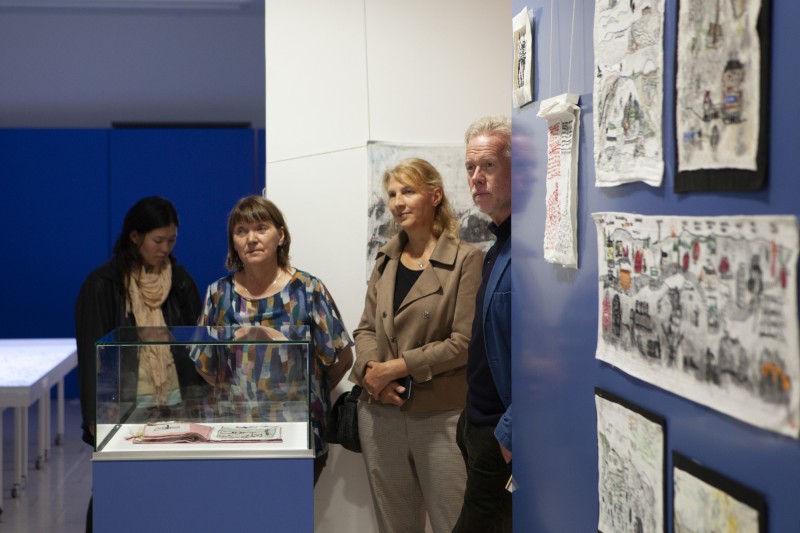
© Olesya Kleymenova/WIENWOCHE -
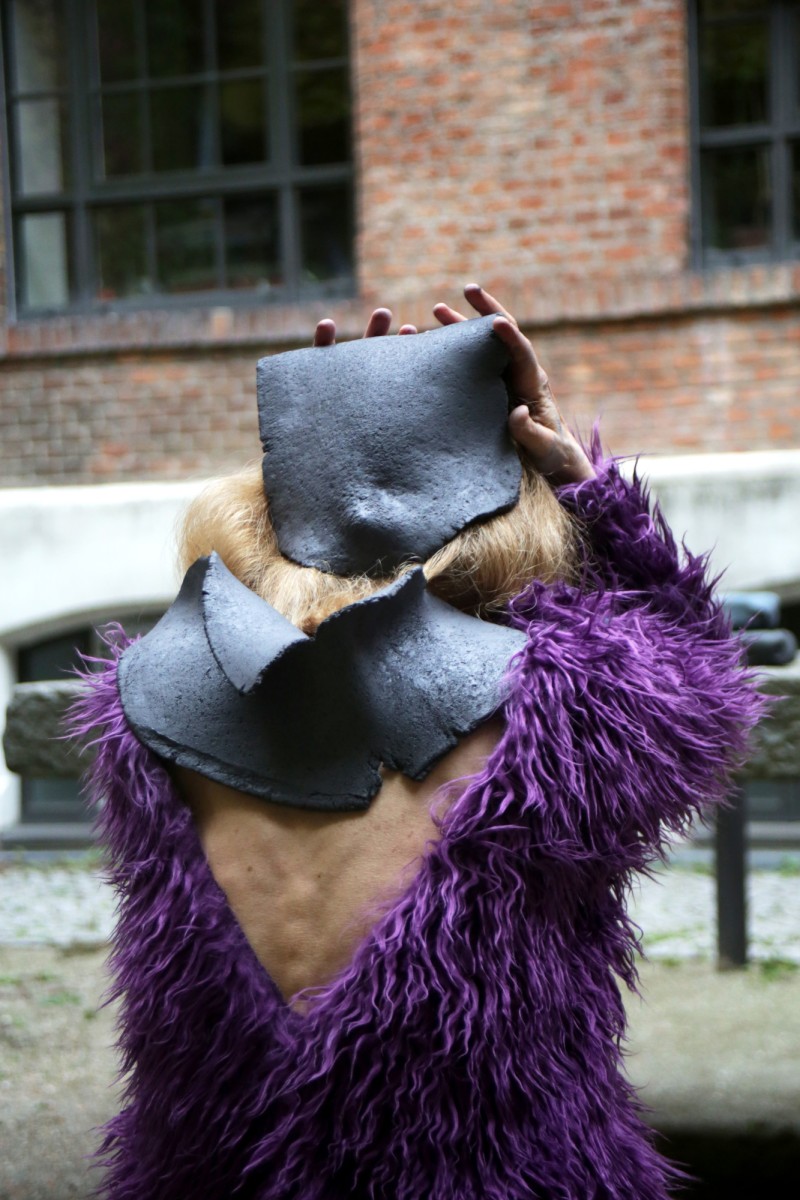
© WIENWOCHE -
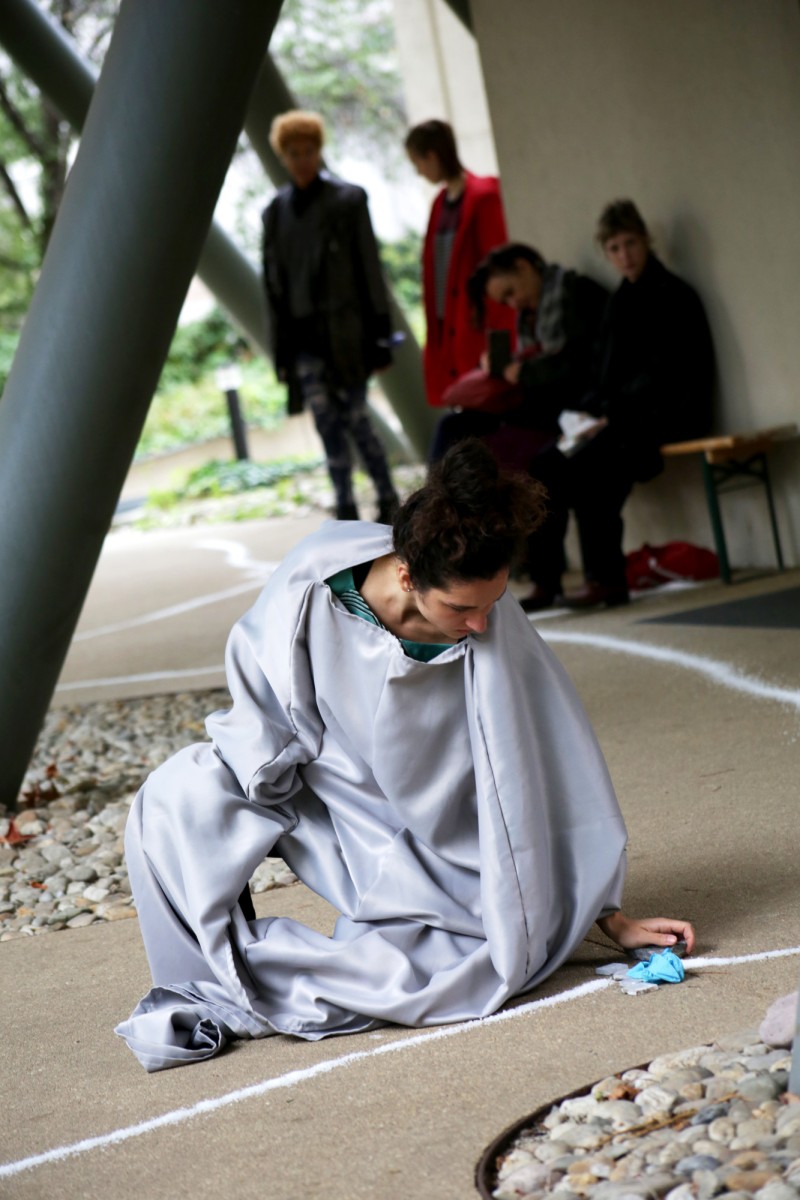
© WIENWOCHE -
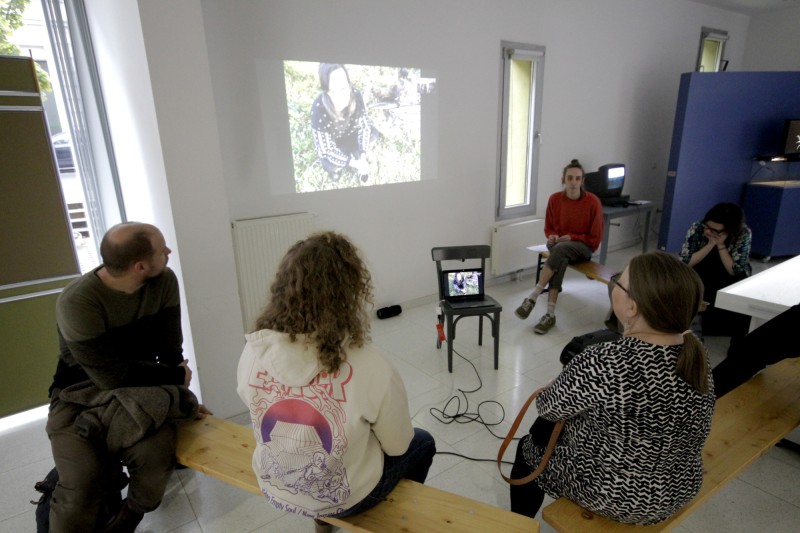
© WIENWOCHE
WIENWOCHE
Who does the labour for this text to be written on a laptop, for data to flow, for our flats to be heated, for our monuments, houses and industries to be built (or destroyed) and for our wealth to grow? The global network of supply chains of materials and energy has to be reshuffled, faced with the continuous atrocities it causes. At the same time zooming in while simultaneously regarding global connections, the exhibition takes a closer look at the complex entanglements of exploitation.
WHO DOES THE WORK?
For some, extractive labour is the only way to survive, especially and paradoxically for those workers, whose environments are being destroyed in the process. Extraction has constructed colonial relationships and sustainable hierarchies. Amid contemporary racisms and sexisms and their toxic narratives, how can ‘we’ consider more-than-human labour?
Without the agencies of water, rocks, bees, trees and birds, nothing remains to be done. Humans carry stones, but stones carry weight. Which stones, whose stones, moved by whom? And in whose lungs do they arrive as a sedimentation of the dust, mingled with saliva? Birds, insects and trees undertake reforestation on dug up and disturbed ground. How will more-than- human communities come together in exploited territories?
WHO BELONGS TO THE COMMUNITY?
Following the material, following the followers of the material and staying with their troubles for a while can lead to surprising naturecultures of (unpaid) care, love and the enormous work of radical endurance amidst exploited areas. Embroideries document the lost homes, and their shared production allows for a coming together and an exchanging of stories of sorrow and joy. Paintings preserve the carefully chosen colours of houses before they are dismantled to make way for further extraction. Testaments of radical endurance and pleasure can emerge in unexpected places, together with the precarious labour of healing.
Relating to destroyed and damaged worlds, this exhibition looks at how material is exploited, moved, crushed, chopped and utilized – to extract yet further material. It opens a space for thinking and sharing ways of responding to the complex ecologies of the more-than- human communities of lithic labour which constantly reorganize in environments stripped for the benefits of those living far away, namely here.
The exhibition corresponds to the research project ‘Two Ore Mountains: Feminist Ecologies of Spatial Practices,’ Karin Reisinger, Academy of Fine Arts Vienna.
Exhibition contributors: Rehema Chachage, Lisa Hinterreithner, Karin Hojak-Talaber, Sepideh Karami, Dariia Kuzmych, Sara Lanner, Ernst Logar, Malmnedles / Handarbetscafé Gällviare-Malmberget, Katarina Pirak Sikku, Alexander Rynéus & Per Bifrost, Asha Sumra, Miriam Vikman
Production support: Mo Hartmann, Halina Rahdjian, Ilvy Reisinger
Related Events
17.09.
Curated by: Karin Reisinger
Exhibition Saturday
17.09.
Karina Jarrett and Eeva Linder
"On Dealing With Loss" Embroidery Workshop
With Handarbeitscafé Gällivare-Malmberget
Show more details
Karina Jarrett will report on the situation of the disappearing mining town Malmberget and
what this has to do with embroideries. Together, we will do some small embroideries while
sharing stories.
17.09.
Karina Jarrett and Eeva Linder & Robert Supper, Holger Paulick, Thomas Hofmann
Exhibition Opening with Handarbetscafé Gällivare-Malmberget
Welcome Note by Swedish Embassy
18.09.
Curated by: Karin Reisinger
Exhibition Monday
20.09.
Curated by: Karin Reisinger
Exhibition Tuesday
20.09.
Katarina Pirak Sikku and Miriam Vikman, Moderated by Karin Reisinger
"On Living in extractive Areas"
Show more details
Katarina Pirak Sikku will introduce her artwork “I am the last one who saw the river alive”, which illustrates places lost as a result of the production of hydropower.
Miriam Vikman will talk about her project of creating a footpath between two clear-cut wooded areas as a way of taking back the remaining woods, in which only hoofs,paws and feet have trodden so far.
Both works deal with loss, material connections, indigeneity and the colonisation of Sweden's North, which we will discuss in the workshop.
21.09.
Curated by: Karin Reisinger
Exhibition Wednesday
22.09.
Curated by: Karin Reisinger
Exhibition Thursday
23.09.
Curated by: Karin Reisinger
Exhibition Friday
24.09.
Curated by: Karin Reisinger
Exhibition Saturday 2
24.09.
Sara Lanner
"On Material Agencies"
Show more details
The performance is part of the artist’s “mining cycle” and installs an exchange of micro-
performances, personal stories and items between audience and performer to reflect on the
necessity for, and dependence on, materials and resources.
Break with mineral tea
24.09.
Lisa Hinterreithner
"On Re-Contacting"
Show more details
Lisa Hinterreithner’s intimate encounters close the exhibition with acts of recontacting with
material. For this contribution, the artist works especially with clay.
